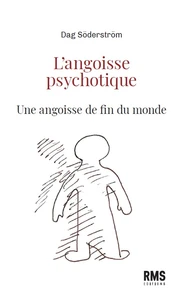In the course of nearly thirty years of work with patients in psychiatric hospitals and private practice, Francoise Davoine and Jean-Max Gaudilliere have uncovered the ways in which transference and countertransference are affected by the experience of social catastrophe. Handed down from one generation to the next, the unspoken horrors of war, betrayal, dissociation, and disaster in the families of patient and analyst alike are not only revived in the therapeutic relationship but, when understood, actually provide the keys to the healing process.
The authors present vivid examples of clinical work with severely traumatized patients, reaching inward to their own intimate family histories as shaped by the Second World War and outward toward an exceptionally broad range of cultural references to literature, philosophy, political theory, and anthropology. Using examples from medieval carnivals and Japanese No theater, to Wittgenstein and Hannah Arendt, to Sioux rituals in North Dakota, they reveal the ways in which psychological damage is done--and undone.
With a special focus on the relationship between psychoanalysis and the neurosciences, Davoine and Gaudilliere show how the patient-analyst relationship opens pathways of investigation into the nature of madness, whether on the scale of History--world wars, Vietnam--or on the scale of Story--the silencing of horror within an individual family. In order to show how the therapeutic approach to trauma was developed on the basis of war psychiatry, the authors ground their clinical theory in the work of Thomas Salmon, an American doctor from the time of the First World War.
In their case studies, they illustrate how three of the four Salmon principles--proximity, immediacy, and expectancy--affect the handling of the transference-countertransference relationship. The fourth principle, simplicity, shapes the style in which the authors address their readers--that is, with the same clarity and directness with which they speak to their patients.
In the course of nearly thirty years of work with patients in psychiatric hospitals and private practice, Francoise Davoine and Jean-Max Gaudilliere have uncovered the ways in which transference and countertransference are affected by the experience of social catastrophe. Handed down from one generation to the next, the unspoken horrors of war, betrayal, dissociation, and disaster in the families of patient and analyst alike are not only revived in the therapeutic relationship but, when understood, actually provide the keys to the healing process.
The authors present vivid examples of clinical work with severely traumatized patients, reaching inward to their own intimate family histories as shaped by the Second World War and outward toward an exceptionally broad range of cultural references to literature, philosophy, political theory, and anthropology. Using examples from medieval carnivals and Japanese No theater, to Wittgenstein and Hannah Arendt, to Sioux rituals in North Dakota, they reveal the ways in which psychological damage is done--and undone.
With a special focus on the relationship between psychoanalysis and the neurosciences, Davoine and Gaudilliere show how the patient-analyst relationship opens pathways of investigation into the nature of madness, whether on the scale of History--world wars, Vietnam--or on the scale of Story--the silencing of horror within an individual family. In order to show how the therapeutic approach to trauma was developed on the basis of war psychiatry, the authors ground their clinical theory in the work of Thomas Salmon, an American doctor from the time of the First World War.
In their case studies, they illustrate how three of the four Salmon principles--proximity, immediacy, and expectancy--affect the handling of the transference-countertransference relationship. The fourth principle, simplicity, shapes the style in which the authors address their readers--that is, with the same clarity and directness with which they speak to their patients.

 , qui est-ce ?
, qui est-ce ?